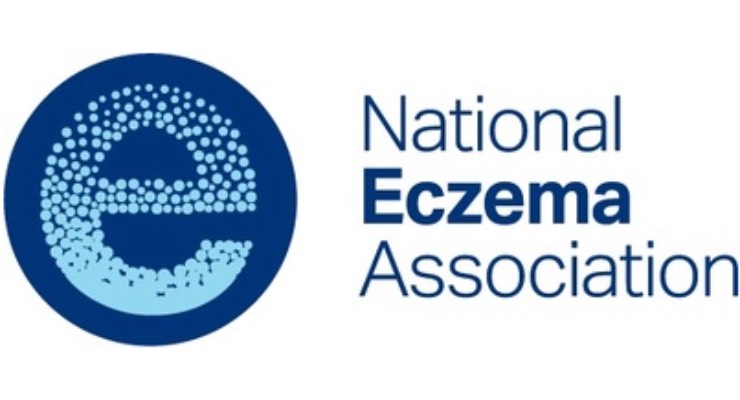
The National Eczema Association (NEA) announced the recipients for its 2023 research grants. This is the 20th anniversary of NEA’s grant program. So far, the NEA has invested nearly $4 million since its first grant was awarded in 2004.
The 2023 research grantees include:
The Champion Research Grant encourages researchers to continue research on emerging or ongoing challenges in eczema or bring their expertise to the field of eczema.
- Katrina Abuabara MD, MA, MSCE, University of California at San Francisco, San Francisco, CA
- Dietary salt consumption as a predictor of atopic dermatitis heterogeneity and cardiac comorbidity
- Aaron Drucker MD, ScM, Women’s College Hospital, Toronto, Canada
- Long-term safety of topical corticosteroids
- Henning Holle, PhD, University of Hull, Hull, England
- Understanding and reducing psychosocial burden of eczema: An attentional bias approach
- Francesca Levi-Schaffer, PharmD, PhD, Hebrew University of Jerusalem-Hadassah School of Medicine, Jerusalem, Israel
- Employing CD300a and Resolvin D1 to stop inflammation and induce resolution in atopic dermatitis
The Spotlight Research Grant promotes research tied to eczemas outside of atopic dermatitis.
- Zelma Chiesa Fuxench MD, MSCE, University of Pennsylvania, Philadelphia, PA
- Validity of diagnostic codes for identifying seborrheic dermatitis in the health improvement network
- Yin Li, PhD, Emory University School of Medicine, Atlanta, GA
- Occupational contact dermatitis among healthcare workers: Implications for healthcare system
The Childhood Eczema Challenge Grant was created in collaboration with the Pediatric Dermatology Research Alliance (PeDRA) to accelerate research that improves the health and quality of life of pediatric patients and their families.
- Hassan Vahidnezhad MSc, PhD, Children’s Hospital of Philadelphia, Philadelphia, PA
- Genetic landscape of pediatric patients with monogenic susceptibilities to AD
The Catalyst Research Grant supports early-career scientists on the path toward becoming the next generation of eczema thought leaders by supporting hypothesis-driven research projects.
- Ofir Cohn PhD, Boston Children’s Hospital, Boston, MA
- Deciphering how genetic variation associated with risk of eczema impacts human dendritic cell subset function
- Liwen Deng BS, PhD, President & Fellows of Harvard College, Boston, MA
- S. aureus neuroimmune signaling in itch and skin barrier damage
- Mengxu Ge, PhD, Boston Children’s Hospital, Boston, MA
- Wnt/beta-catenin signaling in barrier function and allergic skin Inflammation
- Gerard Callejo Martin, PhD, University of Barcelona, Barcelona, Spain
- Smoothing the itch: Innovative strategies to alleviate chronic pruritus through modulation of TRESK channels
- Ge Peng, MD, Juntendo University Graduate School of Medicine, Tokyo, Japan
- Elucidation of the pathogenic mechanism of atopic dermatitis associated brain inflammation
- Yiannis Vasilopoulos MSc, PhD, University of Patras, Patras, Greece
- Decoding the complex architecture of atopic dermatitis in the post-genomic era (ATOMIC)
- Matthew Vesely, MD, PhD, Yale University, School of Medicine, New Haven, CT
- VISTA as a potential therapeutic target in eczema
- Sheng-Pei Wang, MD, MPH, University of California at San Francisco, San Francisco, CA
- Understanding body dissatisfaction, eating behaviors, and eating disorders in children with eczema
The Engagement Research Grant is for emerging investigators who are exploring a new research concept, piloting a new experiment, or undertaking a novel or secondary data analysis.
- Sara Henderson MRes, PhD, Centre for Skin Sciences,, University of Bradford, Bradford, England
- The role of liquid hand and body soap in the dysbiosis of the skin microbiome during atopic dermatitis
- Ahnna Lee PhD, MSN, RN, University of California at San Francisco, San Francisco, CA
- Predictors of AD disease course in childhood
- Gil Yosipovitch MD, University of Miami School of Medicine, Miami, FL,
- Impact of an educational intervention on adolescent and medical student eczema knowledge (RASHE)
For every $1 NEA has invested in eczema research, grantees have collectively gone on to obtain an additional $10.12 in subsequent National Institutes of Health (NIH) funding to support further research.

